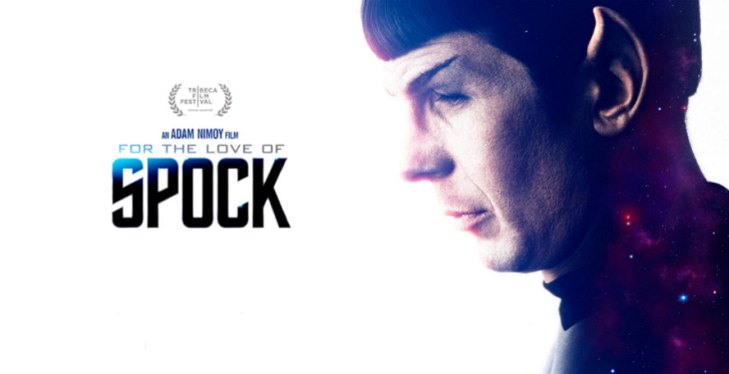No one person can take sole credit for Star Trek’s success, not even creator Gene Roddenberry.
But Leonard Nimoy could make a pretty strong claim to being the franchise’s heart, or at least its face to the outside world, having portrayed Trek’s most iconic character on the original show, plus the animated series and six feature films. And that’s before his appearance in the 2009 reboot provided the key link between Star Trek‘s past and its current incarnation as a series of Hollywood blockbusters.
Nimoy’s career is chronicled in a new documentary, For the Love of Spock, directed by his son Adam Nimoy (who began his filmmaking career by directing episodes of Star Trek: The Next Generation). Adam has said that the film started out as a history of the Spock character and the broader cultural phenomenon. But after Leonard’s death in 2015, it transformed into a joint biography of the actor and the character he portrayed.
For the Love of Spock opened in theaters and on VOD this weekend, and if you want a sneak peek, you can you can watch behind the scenes footage on the We Are Colony website.
The film covers the highlights of Nimoy’s life — which for 25 years, was closely tied to the story of Star Trek. There’s Spock’s breakout success with audiences, helped by Nimoy and the writers’ piecemeal development of key elements of his character and culture. There’s Star Trek’s cancellation, followed by Nimoy’s efforts to leverage his fame into a career beyond Trek — until he was pulled back into the show’s revival as a series of films. (He eventually directed two of the movies, including the enormously successful, whale-centric Voyage Home).
There are moments when For the Love of Spock can feel like little more than a solid behind-the-scenes featurette — but it’s elevated in a few key ways. First, there’s the obvious depth of feeling that almost everyone brings to their interviews. William Shatner (Kirk) still seems shaken by his friend’s death, while Walter Koenig (Chekov) argues that unlike the rest of the Trek cast, Nimoy is the only actor in the world who could have played his role.
It’s not surprising that nearly everyone speaks about Leonard in glowing terms, but Adam also appears on-camera to talk about his often difficult relationship with his workaholic and sometimes distant father. It’s a tough balance for the movie to strike, dancing back-and-forth between the personal history and the broader narrative, but ultimately, it gives you a fuller picture of the man. If anything, I wished the film had been a little more forthcoming about the reasons behind father and son’s estrangement and eventual reconciliation.
Now, if you’re not a Star Trek fan, you might be wondering why a decades-old TV character is worth so much discussion and outright adoration — if so, this movie probably isn’t for you.
Still, the documentary tries to explore and explain Spock’s broader significance. There’s his importance within the franchise itself, where his cool logic provided a crucial counterpoint to Kirk, the dashing captain, and McCoy, the moralistic doctor — and where his rare displays of emotion gave the show and films some of their most memorable moments.
And there’s Spock’s importance to many viewers — to a gay fan for whom the Vulcan became an important symbol of outsiderness, and to the scientists and engineers whose interest in space was ignited by Star Trek, and to whom Spock provided a key model of intellectual curiosity and the scientific outlook.
For the Love of Spock gives viewers a glimpse at why a character distinguished by funny ears and arched eyebrows somehow became a symbol for scientific thought and a progressive outlook on the future — just as an oh-so-60s TV show somehow introduced a set of characters and a universe that are still going strong.
